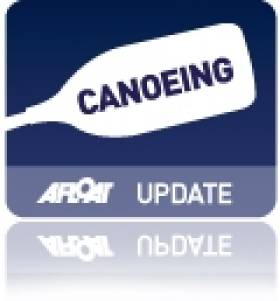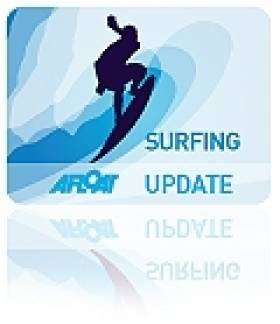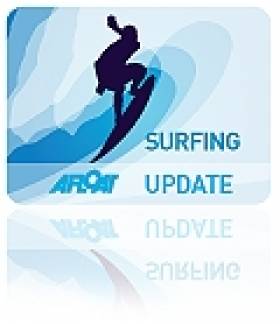Displaying items by tag: Easkey
Shooter Completes Solo Circumnavigation of Ireland by Kayak
Well-wishers broke out the champagne to welcome home Elaine 'Shooter' Alexander as she completed her solo circumnavigation of Ireland by kayak yesterday.
The first woman from Northern Ireland to complete such a feat, Shooter landed at County Antrim Yacht Club 71 days after setting off from the same spot on her 1,000-mile challenge to raise funds for local charity SHARE.
Shooter's skills were regularly tested to the limit. On one occasion she suffered severe sea sickness after getting caught in a large swell during a 12-mile crossing near Brandon Bay.
“I was fully committed with a cliff face on one side and a long paddle to America on the other, so I had to continue despite being severely ill,” she said.
But the challenge wasn't all doom and gloom. One highlight was when Shooter was joined by a pod of six dolphins for over an hour near Easkey on the Sligo coast. And above all, the people she met along the way have left a lasting impression.
“The support from the kayaking community and local fisherman has been great," she said. "Kayakers have paddled stretches with me, met me with tea and biscuits, gave me warm beds and hot showers, shared invaluable local knowledge – I can’t thank them enough."
Stokes Takes Top Spot at Expression Session
British surfer Alan Stokes's massive air-reverse won him the Quiksilver Expression Session in Bundoran this weekend.
Stokes takes home prizemoney of €3,500 in the speciality event for Irish and UK surfers with a simple 'best moves' format.
The 30-year-old from Newquay said he was “stoked and really happy with the win. There were great waves in the end and it was good to have it on a wedge because it is high performance surfing and it all came good.
"It is my first trip to Bundoran," he added, "I love it and it is great. Guinness and waves I can do airs on is as good as it can get for me.”
Meanwhile, Cain Kilcullen from Easkey, Co Sligo was awarded the best local performance to earn himself a wildcard in the Relentless Boardmasters in Newquay this August.
Donegal Surfers Celebrate Top Showing at Easkey
John Britton of the famous Rossnowlagh surfing dynasty was among the winners at the Billabong Easkey Open in Co Sligo last weekend. (SCROLL DOWN FOR GREAT YOUTUBE VID)
The national school teacher from Ballyshannon took the senior title home to Donegal, site of next year's European Surfing Championships.
But Britton wasn't the only Donegal resident to enjoy success at Easkey, the final stop of the Irish Championships Tour.
Nicole Morgan from Tullaghan came tops in the women's event, retaining her Irish championship title. And although missing out on the national title, Emmet O’Doherty from Bundoran won out in the stand up paddle.
Junior talent Iarom Madden Travers from Bundoran also showed skill in the open finals, coming third behind Aaron Reid from Sligo and first place Fergal Smith from Mayo.































































